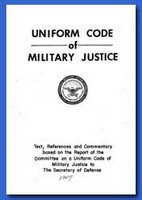Guccione Loses Appeal on Military Ban - Bob Guccione, Penthouse Cannot be Sold on Military Bases
If the federal government has its way, Bob Guccione's going to have to peddle his Penthouse somewhere else. The government recently won a federal appeals decision upholding a ban on selling adult titles in military exchanges.
The ban, officially called the Military Honor and Decency Act, was part of a 1996 defense bill and prohibits exchanges from selling what it defines as "sexually explicit material."
Thought by some legal scholars to be unconstitutional, the ban was initially overturned in early 1997. But the government appealed, and won a two-to-one panel decision in the Second Circuit last November. Now, attorneys for Guccione have filed their own counter-appeal seeking an en banc hearing (meaning all Second Circuit judges would hear, and rule on, the case). If that request is denied, Guccione's vowing to take his case to the U.S. Supreme Court.
"For any ordinary shop in the United States, we would agree with their right to carry or not carry any product for sale," Guccione says. "But when you force stores, through an act of Congress, to take a group of magazines and audiotapes and videotapes off the shelves, that is a First Amendment issue and clearly an act of censorship."
Supporters of the ban point out that it doesn't prohibit people in the military from buying the magazines off-base or subscribing to them. It merely bans the titles from being sold in base exchanges.
In 1997, the Army and Air Force Exchange Service, which runs all exchanges for those two branches, sold some $57 million in magazines, according to a spokesman. In exchanges around the world, AAFES carries 122 adult titles, accounting for 18 percent of total sales, though most stores only carry about five. Those titles are still currently on the shelves.Lawrence Savell, a media law specialist at the New York City firm of Chadbourne & Park, says he thinks Guccione's appeal has merit. "Under classic First Amendment analysis, this [ban] wouldn't hold up," Savell says. "When you start distinguishing between different types of material, that undermines the legitimacy of the statute." He points out that the law as it's currently written would not ban a book containing erotic content, but would ban an audio recording of that book. Similarly, Penthouse is banned, but a book containing images from Penthouse would not be.





















